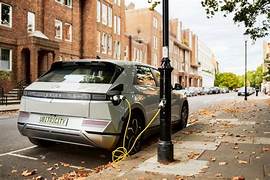Kolkata’s power utility, CESC, is eyeing a collaboration with UK-based firms to boost electric vehicle (EV) charging infrastructure in West Bengal. The move, announced on March 11, 2025, aims to support green energy and meet rising EV demand. It’s a step toward cleaner transport in the region. Here’s what’s happening and why it counts.
A Green Vision for West Bengal
CESC wants to develop EV charging stations and battery storage systems across the state. Vineet Sikka, managing director (distribution) of CESC, hinted at the plan during a meeting with UK delegates. “We are promoting EVs for sustainability. We are currently running a pilot project with fleet operators, and if successful, we may develop charging infrastructure with support from UK firms,” he said. Electricity is regulated in India, so CESC plans to start with a proof-of-concept phase.
UK Ties Strengthen
Six UK small and medium-sized enterprises (SMEs) specializing in EVs visited Kolkata. Companies like Aegis Energy, Allye, Dock-y, Powerup, Hypermotive, and Hodos Media brought expertise in fleet telematics, battery storage, and EV components. Andrew Fleming, UK deputy high commissioner for East and Northeast India, stated, “The UK and Bengal share a common vision of a green, clean future, and this EV delegation is a significant step towards promoting EV innovation and establishing new collaborations.” The visit forms part of the Unlocking the Value Chain of EVs and Micromobility, a project, and is in line with the ambition of East Bengal for clean energy.
Why This Matters
West Bengal’s EV industry is expanding, but its charging infrastructure is behind. CESC’s strategy can fill that gap. EVs require stable charging to succeed, particularly for fleet owners and commuters. The tie-up could also generate employment and bring in investment. It fits into India’s larger objective of expanding EV use and lowering emissions.
Key Highlights
- Collaboration: CESC is looking for UK SME collaborations for EV charging and battery storage.
- Pilot Project: Currently with fleet operators, to be expanded if successful.
- UK Companies Involved: Six SMEs, namely Aegis Energy, Hypermotive, and Powerup.
- Sustainability Focus: Seeks to encourage EVs and clean energy in West Bengal.
Challenges Ahead
Establishing charging networks is not easy. Expenses, availability of land, and regulatory challenges might be the spoilers. Merging UK technology with domestic systems will be a task. But being a regulated player has its advantages. The pilot project with fleet operators will be the proving ground.
The Bigger Picture
The step is in line with India’s thrust for cleaner transport. Kolkata, as any city, also has pollution and traffic problems. EVs might work, provided infrastructure is developed. The tie-up of CESC with UK companies indicates West Bengal’s green future is confident. It also follows national initiatives, such as government incentives for EV charging stations. There is no license to establish charging points, which might help speed it up.
CESC’s strategy is just beginning, but it’s a good start. With UK expertise and local know-how, West Bengal could lead in EV infrastructure.

